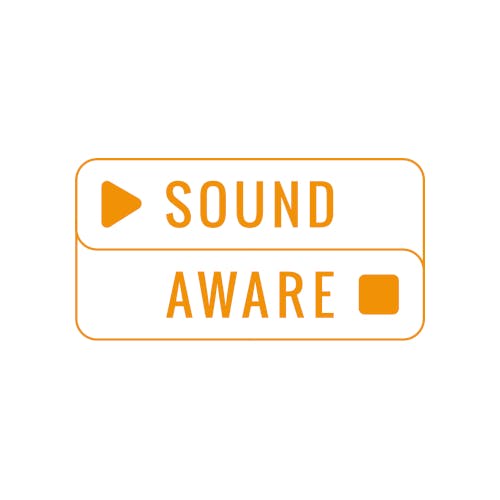
Soundaware Adds AI Insight to Music Data
The music recognition technology pioneer now integrates AI Music Detection into its workflows, helping CMOs...

Soundaware is a leading provider of Music Recognition Technology (MRT), specializing in tracking music usage across diverse media landscapes, including live performances, radio broadcasts, and television. In response to the evolving digital landscape, the company has expanded its focus to encompass non-linear channels such as Video-on-Demand (VOD), audiovisual platforms (AV), and social media, while continuing to deliver high-performance tracking in traditional media.
At the core of Soundaware’s offering is its source-agnostic music identification technology, capable of recognizing audio from any medium, whether a high-quality studio recording or a noisy live performance. In an industry where precise music identification directly impacts the fair distribution of royalties, Soundaware stands out with exceptional identification accuracy rates, ensuring that Collective Management Organizations (CMOs), including Buma-Stemra (Netherlands), Sabam (Belgium), and GEMA (Germany), receive the most reliable data to allocate payments correctly to rights holders.
Accurate music data collection is not just a service, it is a financial safeguard for rights holders. With the surge in AI-generated music, a fundamental question has emerged: Where is AI music being played, and how frequently?
As CMOs strive to uphold fair compensation models, they require tools to differentiate between human-created and AI-generated works. Without transparent tracking mechanisms, these organizations risk misallocating payments or failing to compensate rightful creators. For Soundaware, the challenge was clear: integrate AI music detection into its existing recognition framework to bring full visibility into the growing presence of AI-generated tracks across music usage reports.
For rights holders, tracking music usage is fundamental, not just for monetization but for recognition. CMOs operate under strict regulatory frameworks, determining how royalties should be distributed based on collected data.
However, AI-generated music introduces a new layer of complexity: if a track is composed by an AI, who owns the rights? Should it receive the same treatment as human-created works?
Soundaware sought to equip CMOs with the granular, AI-specific data needed to make informed decisions. By integrating AI music detection, they aimed to deliver detailed insights into the presence of fully AI-generated content within monitored channels, ensuring that regulatory bodies, rights holders, and the wider music industry remain in control of copyright attribution.
To assess the efficacy of our AI Music Detector, Soundaware’s CEO engaged in a proof-of-concept experiment. Collaborating with a trusted partner (a record label already familiar with AI-generated content) he conducted an initial test using a dataset that was purportedly 100% AI-generated.
However, the results didn’t match his expectations: the detection report indicated that some tracks were actually human-made. This led to a moment of confusion—until it was revealed that a colleague had intentionally slipped real human tracks into the dataset.
This unexpected twist reinforced the reliability of AI music detection, proving that not only could the system identify AI-generated music, but it could also accurately distinguish it from human compositions.
Following the successful evaluation, Soundaware integrated AI music detection directly into its automated music recognition workflows. The enhancement introduced an additional verification step: beyond simply identifying a track, the system now determines whether it is AI-generated or human-made.
The process is seamless. For example, when monitoring an hour of radio or streaming content, Soundaware generates a cue sheet (a detailed list of all detected tracks). Now, with the AI classification layer, flagged tracks are explicitly labeled as AI-generated where applicable. This enriched dataset empowers CMOs with deeper transparency, enabling them to make data-driven royalty distribution decisions.
As AI music technology rapidly evolves, Soundaware expressed the need for continuous adaptation. The landscape is dynamic, AI music generators frequently update their models, refining their synthesis techniques to produce increasingly human-like compositions.
To maintain detection accuracy, we have established a unique monitoring framework, ensuring that no AI model goes undetected for more than 15 days. Whether a new AI-powered music generator emerges or an existing model is upgraded, our detection tool is designed to adapt in real-time, preventing any blind spots in music usage reports.
For Soundaware, integrating AI music detection is not just an added feature, it is a critical step toward ensuring transparency and fairness in rights distribution. The company remains committed to delivering data-driven insights without bias, providing CMOs and industry stakeholders with comprehensive, factual reports rather than subjective interpretations.
One of the most significant advancements in this initiative is the ability to pinpoint the AI model responsible for generating a track. Soundaware is prepared to supply this metadata to clients upon request, allowing organizations to implement policy-driven responses, whether that means applying specific licensing rules, enforcing content restrictions, or addressing new regulatory challenges.
Soundaware’s adoption of AI music detection represents a significant milestone in the evolving music tracking landscape. By extending our product and technology to serve music usage monitoring providers, we further solidify our comprehensive presence across the music industry value chain, ****from digital streaming platforms and music distributors to record labels, production music libraries, and PROs/CMOs.
As AI-generated music continues to shape the industry, ensuring transparency, accuracy, and fairness will remain a collective responsibility. And with AI music detection at the forefront, Soundaware is leading the charge toward a more accountable, data-driven future for music rights management.
👉 Sign up now to audit your catalog and ensure transparency.
Think we're on the same wavelength?